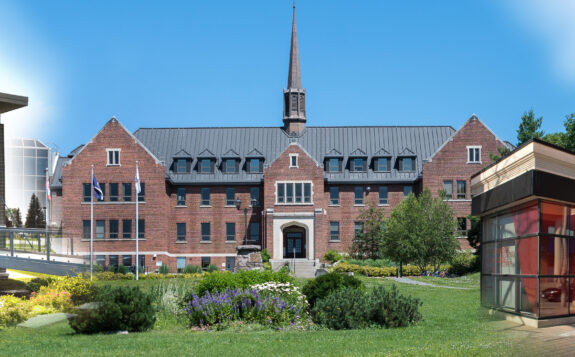Innovative new lab facilities will support growth, research and collaboration
(SAULT STE. MARIE, ON- January 26, 2021): Algoma University’s plans to expand facilities for its growing School of Computer Science and Technology received a significant boost thanks to an investment of $1.98 million announced earlier today by Sault Ste. Marie MP Terry Sheehan on behalf of the Honourable Mélanie Joly, Minister of Economic Development and Official Languages and Minister responsible for FedNor.
The project brought forward by Algoma University aligns with Federal priorities to support innovation and digital technology, keys to the vitality of the Canadian economy. Preparing Canadians for the jobs of today and tomorrow will provide Canadian companies with the highly skilled workers they need to innovate and modernize their processes to stay on the cutting edge.
“We would like to share our appreciation to FedNor and the Government of Canada for their support of this strategic initiative,” noted Asima Vezina, President and Vice-Chancellor, Algoma University. “This investment will have a significant socio-economic impact in Sault Ste. Marie, building on the technical infrastructure required for our campus to attract and develop top student and faculty talent to the region. Algoma University recognizes the importance of being competitive in the ICT sector, including increasing the number of talented graduates required to attract and retain a robust ICT workforce in our community.”
The targeted investment, provided through FedNor’s Northern Ontario Development Program, will be used to design, build and equip a state-of-the-art computer science and technology programming and research area focused on developing the next generation of leaders in the field. “Ensuring Canadians have the digital skills needed to enable the growth of businesses in Sault Ste. Marie and across the region is one of our top priorities,” shared Minister Joly in a prepared statement. “We are committed to preparing people for the jobs of tomorrow as part of our government’s long-term approach to addressing current and future workforce needs enabling entrepreneurs to take advantage of innovation to grow their businesses.”
Expanded facilities will support research and innovation, testing & lab simulations, and learning spaces that promote the development of expertise in the areas of mobile application engineering, cybersecurity, software systems, data analytics and computer game technology. In addition, the new space will include two innovation and collaboration zones designed to ensure creativity, project innovation, product development and idea incubation. Improved workspace for interactive display integration to encourage continuous collaboration and idea-sharing among students, faculty, researchers and industry partners is also incorporated into final designs of the new space.
“Our government is proud to support Algoma University in Sault Ste. Marie, which is home to more than 1700 full-time students,” notes MP Sheehan. “Today’s investment will lay the groundwork for growth that will enable Algoma University to increase its enrolment. Furthermore, the upgraded computer lab will provide regional employers with highly qualified computer science personnel who can apply data analytics to improve decision-making, use software engineering to enhance cybersecurity, and transform processes with the application of new technologies that have the potential to increase profitability and efficiency.”
The project is expected to create 23 construction-related jobs and ultimately an increase in student enrolment, staffing levels and increased industry partnership and research output. This investment will also support the continued development of an innovative ecosystem in the north that ensures the region has the talent required to compete globally, create the jobs of the future, and contribute to the highly skilled workforce that will drive the economy of the future.
Share Article




